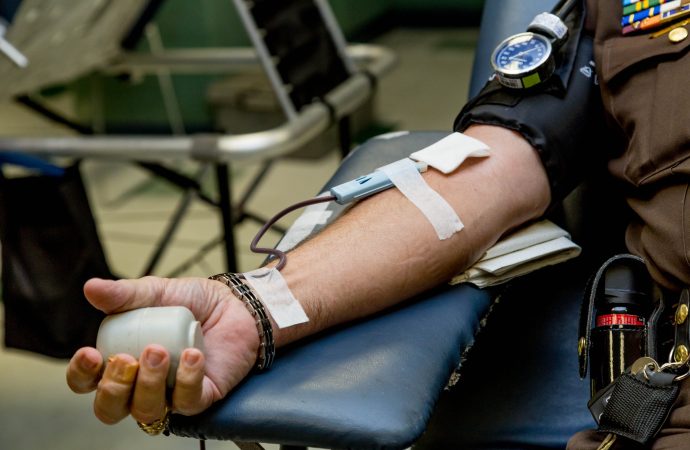As the world continues to grapple with the ongoing COVID-19 pandemic, donating blood has become more critical than ever before. However, in addition to the usual screening questions you may face as a blood donor, there are now additional measures put in place due to the current health crisis. In this blog post, we will
As the world continues to grapple with the ongoing COVID-19 pandemic, donating blood has become more critical than ever before. However, in addition to the usual screening questions you may face as a blood donor, there are now additional measures put in place due to the current health crisis. In this blog post, we will explore what these new screening questions are and why they are necessary for ensuring both your safety and that of others during this unprecedented time. So read on and discover how you can help save lives by donating blood while staying safe amidst COVID-19!
What is COVID-19?
COVID-19 is a new coronavirus that was first identified in 2019. At this time, there is no vaccine or treatment available for COVID-19. As a result, it is important for people who are eligible to donate blood to be aware of the additional screening questions that will be asked of them as part of the donation process.
Here are some of the most common questions that will be asked:
1. Are you experiencing any symptoms?
If you are feeling sick, please tell your donor coordinator so that appropriate testing can be done. Donors who develop any severe symptoms (such as fever or chest pain) should not donate blood and should see a doctor immediately.
2. Have you traveled to an area where COVID-19 is prevalent?
Yes, there have been cases reported in several countries around the world including Saudi Arabia, Qatar, Italy, and Spain. If you have recently traveled to one or more of these areas, please let your donor coordinator know so that appropriate testing can be done. However, because there is currently no vaccine or treatment available for COVID-19, it’s important to note that even if you have not traveled to an area where the virus is prevalent, you still may be at risk if you are exposed to it through close contact with someone who has been infected.
What are the symptoms of COVID-19?
There is no vaccine or treatment for COVID-19, but early detection and treatment is critical to preventing its dangerous effects. The most common symptoms of COVID-19 include fever, chills, and a sore throat. However, many people with the virus don’t experience any specific symptoms at all.
If you are concerned that you may have contracted COVID-19, you should visit your doctor. He or she can take a blood sample to check for the virus and provide guidance on how to prevent its spread. If you do develop signs or symptoms of COVID-19, be sure to tell your doctor as soon as possible.
How do you know if you have been infected with COVID-19?
If you are donating blood, certain additional questions may be asked of you in the next few weeks. These include questions about your history of travel to areas in Africa and the Middle East where coronavirus is now being spread, as well as any new medical conditions you have been experiencing. At this time there is no test that can definitively confirm that someone has contracted COVID-19, but these questions may help discourage people from donating if they do not feel comfortable answering them.
What blood donation screenings should you undergo as a result of COVID-19?
The Centers for Disease Control and Prevention (CDC) has issued a warning about hepatitis C infection and blood donation following the circulation of a new strain of the virus called COVID-19.
Since this is a new strain of the virus, it is possible that some people who have had contact with blood from someone who has been infected with COVID-19 may develop hepatitis C after donating blood. The CDC advises those who are at risk of developing hepatitis C to refrain from donating blood.
If you are considering donating blood, you should first speak with your doctor or other health care provider about your risk factors for hepatitis C and whether you should donate blood. You should also be screened for hepatitis C prior to donation using one or more of the following tests: an antibody test, a viral load test, or both.
Who should receive blood donations if they are healthy and have not been exposed to COVID-19?
If you are healthy and have not been exposed to COVID-19, you may be able to donate blood. However, before donating, it is important that you follow the guidelines for additional screening outlined by the CDC. These include asking about your travel history to exposed areas and if you have ever had any open cuts or sores in your mouth or on your lips.
Conclusion
If you are age 18 or older and interested in donating blood, please be aware that starting on August 25, 2019, donors will undergo additional screening for the coronavirus (COVID-19). This includes a physical exam and a questionnaire about recent travel. If you have any questions about these screenings, don’t hesitate to call 1-800-RED CROSS.

















Leave a Comment
Your email address will not be published. Required fields are marked with *